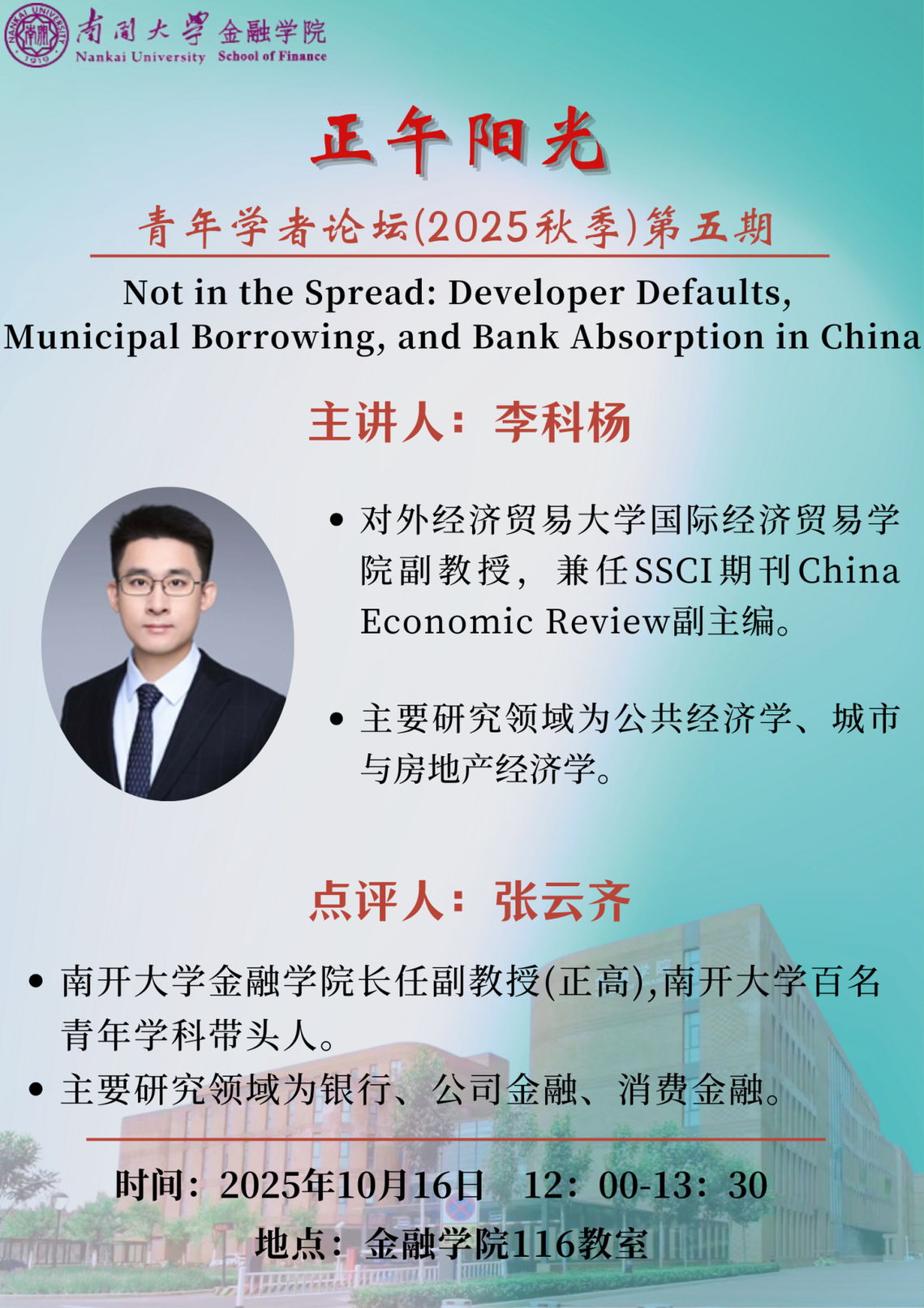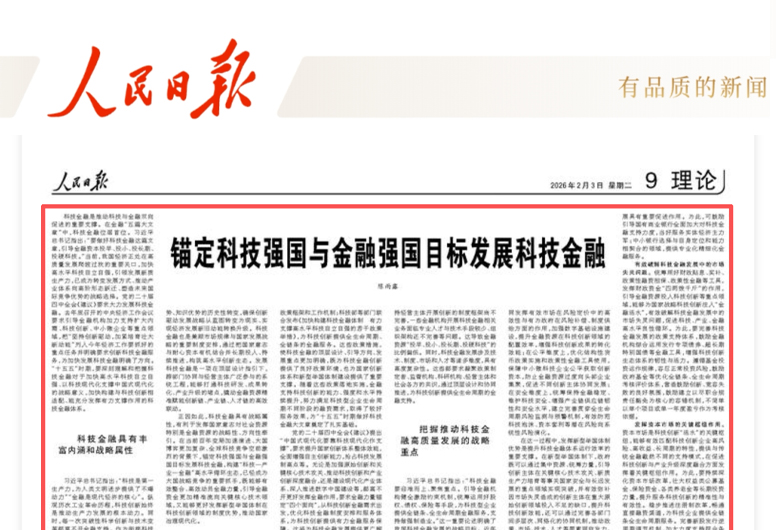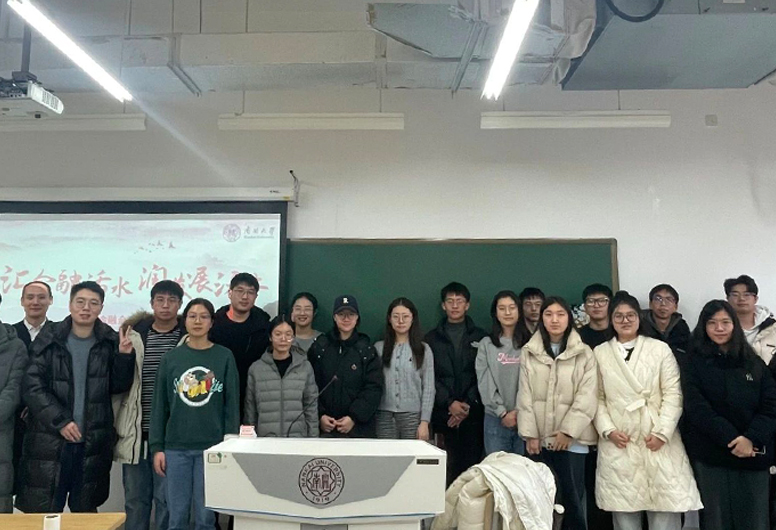活动预告 | 正午阳光——青年学者论坛(2025秋季)第5期
“正午阳光——青年学者论坛”是金融学院定期举办的以院内师生参与为主的学术交流活动,为全院专家学者之间、师生之间、南开金融与国际国内学术界之间提供了难得的交流机会。本学期“正午阳光”论坛初心不改,扬帆远航再出发,致力于营造学院学校科研氛围,推动师生学术科研水平不断提升!
2025年春季学期 “正午阳光——青年学者论坛”第5期活动安排如下:
讲座题目:Not in the Spread: Developer Defaults, Municipal Borrowing, and Bank Absorption in China
主讲人:李科杨
李科杨,对外经济贸易大学国际经济贸易学院副教授,兼任SSCI期刊China Economic Review副主编。主要研究领域为公共经济学、城市与房地产经济学。在Journal of Public Economics、Journal of Development Economics、Journal of Urban Economics、Journal of Human Resources、经济学(季刊)等国内外一流经济学期刊发表论文十余篇,主持国家自然科学基金青年项目一项。曾获得亚洲房地产学会年会最佳论文奖、世界华人不动产学会年会最佳论文奖(特等奖)、中国房地产学术研讨会最佳论文奖(一等奖)等学术荣誉和奖励。
点评人:张云齐
张云齐,南开大学金融学院长任副教授(正高),南开大学百名青年学科带头人,主要研究领域为银行、公司金融、消费金融,研究成果发表于Management Science,Journal of Financial and Quantitative Analysis等多个国际顶级期刊,主持国家自然科学基金面上项目、青年项目、 教育部人文社科基金等多项课题,并担任Management Science,Journal of Financial and Quantitative Analysis, Journal of Business Ethics, Journal of Banking and Finance 等国际知名期刊评委和多个国际会议评审委员会委员。
讲座时间:2025年10月16日(周四)12:00-13:30
讲座地点:金融学院116教室
内容摘要
We examine how corporate defaults propagate into public finance and the banking system by leveraging real estate developer bond defaults in China as plausible exogenous shocks. Using a staggered difference-in-differences design on a city–quarter panel of 263 cities from 2016 to 2022, we show that developer defaults trigger a sharp substitution from land revenues to local government financing vehicle (LGFV) bonds: issuance rises by 67.5%—equivalent to CNY 915 billion annually. Strikingly, borrowing expands without higher spreads, indicating non-market absorption. We trace this to city commercial banks, which absorb local LGFV bonds under government influence and subsequently issue subordinated debt to meet capital requirements. This chain—from real estate distress to municipal borrowing to local banks—highlights a novel fiscal-financial transmission channel. Our findings extend the literature on state-owned banks, local government debt, and systemic risk by demonstrating how fiscal institutions exacerbate financial fragility when market discipline fails.











